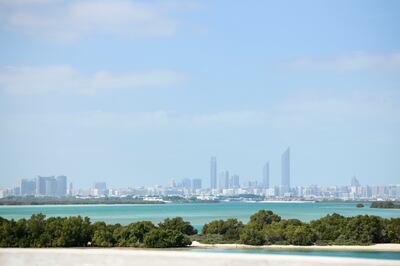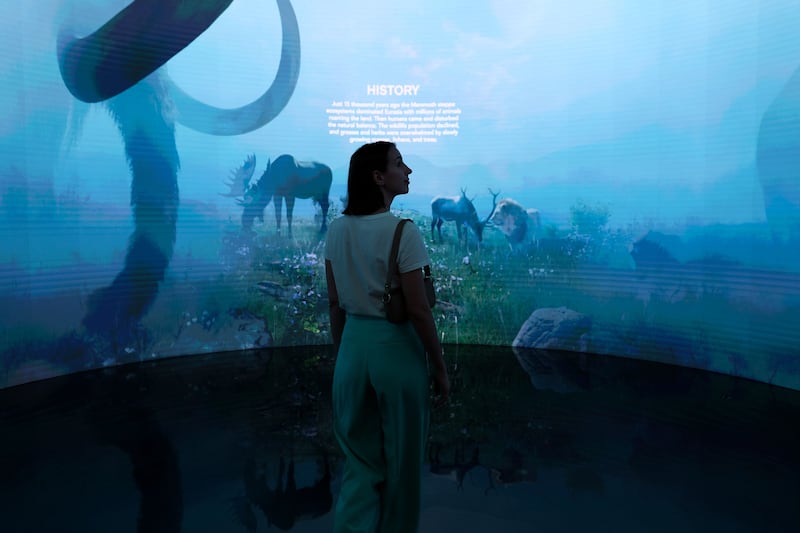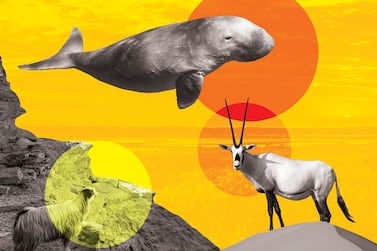The Cop28 UN climate summit last year in Dubai presented the international community with a clear mandate: Place nature at the very heart of climate action.
Today being Earth Day and International Mother Earth Day is a timely moment for us to reflect on the nature-specific outcomes of Cop28. These days are a global call to action for environmental stewardship and a reminder of the interconnectedness of life on Earth.
International Mother Earth Day, established by the UN in 2009, invites us to live in harmony with nature and the planet we call home. It’s a moment to celebrate, read about and learn from the Indigenous peoples who are on the frontlines of climate action.
Cop28 has set a precedent for the integration of nature in addressing climate change, offering a roadmap for the journey ahead. The summit underscored the indispensable role of Indigenous peoples in environmental protection and conservation as well as in climate action. Indigenous knowledge and practices are foundational in protecting nature and play a significant role in both mitigating and adapting to climate change.
Cop28's achievements in nature and climate action are multifaceted. The unanimous agreement in the UAE Consensus that all countries should halt and reverse deforestation by 2030 is a landmark commitment that underscores the importance of forests in maintaining ecological balance and climate stability. This goal, ambitious in its scope, is complemented by the mobilisation of $2.7 billion in financing for nature-related projects.
The specificity of the commitments made, including the $1.7 billion dedicated to forest conservation and the $100 million contribution from the UAE, exemplifies a targeted approach to biodiversity and ecosystem protection, especially across the world’s largest carbon sinks in South America, Africa and Asia.
These funds are allocated specifically for crucial projects that aim to conserve forests, restore degraded lands and protect endangered species, thereby safeguarding biodiversity and ecological integrity.
Our partnership is making significant progress in implementing its comprehensive programme through projects in selected countries with rich forest resources, notably Ghana. We recently met representatives from Ghana's Ministry for Land and Natural Resources to organise a workshop in the country that aims to kickstart this ambitious programme and serves as tangible evidence of the impactful work we are doing.
Cop28 also highlighted the essential role of marine and coastal ecosystems in the climate equation. The formation of the Mangrove Alliance for Climate and the signing of the Mangrove Breakthrough is already bringing us closer to meeting the goal of conserving and restoring 15 million hectares by 2030 and reaching $4 billion in sustainable finance.

The launch of initiatives at Cop28 focused on seagrass conservation, representing significant steps forward in our understanding and appreciation of these vital ecosystems. Mangroves and seagrasses are not just carbon sinks, they are also protectors of coastal communities against the effects of climate change, and act as nurseries for marine life – sustaining biodiversity and fisheries that millions of people depend on for their livelihoods.
The connection between nature and achieving the Paris Agreement's goals has never been more evident than after Cop28. The realisation that nature-based solutions can contribute significantly to climate mitigation and adaptation is a paradigm shift, emphasising the need for a holistic approach to environmental and climate policies.
This approach is not just about reducing emissions; it is about creating sustainable interaction between humans and the natural world, where each action in favour of nature is also a step towards climate resilience and sustainability.
As we approach a critical phase in implementing the ambitious goals set forth at Cop28, particularly those related to nature, approaching major UN meetings this year hold immense significance. These conventions – on biological diversity in Colombia this October, on climate change in Azerbaijan this November and on desertification in Saudi Arabia in December – provide a crucial timetable for taking concrete actions and making substantial progress. It is imperative that these goals are not isolated within specific sectors but are integrated across all facets of global environmental governance, ensuring a holistic approach to addressing environmental challenges.
The key to success lies in the implementation of our commitments. This requires a concerted effort from all sectors of society, including governments, non-state actors, the private sector, civil society, financial institutions, charities and individuals. We all have a role to play in protecting the planet.
The Asian Venture Philanthropy Forum convening in Abu Dhabi is a prime example of the pivotal role that philanthropy can play in this ecosystem, providing a platform for collaboration, innovation and funding for nature-based climate solutions.
Our journey from Cop28 towards a more sustainable and resilient future is a collective endeavour that demands action, innovation and perseverance. It requires us to rethink our relationship with nature, not as a resource to be exploited, but as a partner in our survival and prosperity.
We must build on the momentum of Cop28, leveraging the commitments made and the pathways forged, to ensure that our actions today lead to a healthier, more sustainable planet for future generations.






